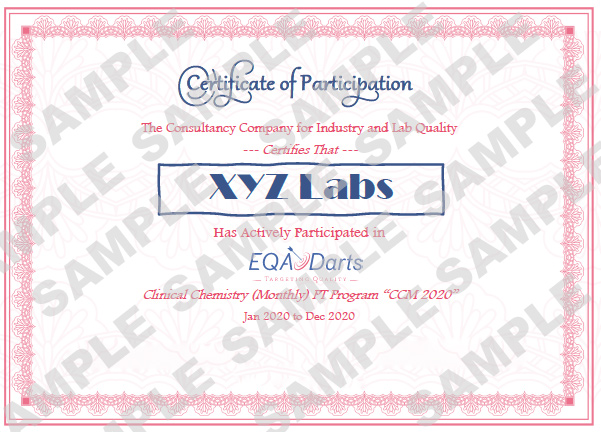Targeting quality
WHAT IS EQA
External Quality Assessment (EQA also known as Proficiency testing/PT) programs: “ Programs for Evaluation of participant performance against pre-established criteria by means of inter-laboratory comparisons”.1
Drive for EQA
“EQA programmes are well established and have contributed greatly to improving the quality of care at all levels of the health care system. In order to improve the situation in developing countries, governments need to recognize the importance of implementing quality measures in patient care and disease prevention and control, advocating quality testing at all levels, and allocating adequate resources to ensure quality testing. This will require establishing a national quality testing programme. It is important to recognize that a policy towards improving health care should include EQA programmes for all testing sites
All public and private laboratories should be encouraged to participate but, wherever possible, participation should be mandatory”.2
1 ISO/IEC 17043:2010: Conformity assessment — General requirements for proficiency testing.
2 WHO manual for organizing a national external quality assessment programme for health laboratories and other testing sites. Geneva, Switzerland: WHO; 2016”.
Our Vision
To be a model for a trustworthy partner indispensable to any quality-seeking laboratory.


Our Mission
To offer the Market an ISO-compliant EQA program, that fulfils the WHO recommendations, satisfies regulatory requirements and meets laboratory needs and to support our partners with consultancy services essential to leverage the quality of services they offer.
Why EQA, not only IQC?
- Internal Quality Control (IQC) assesses, in real time, whether the performance of a lab is similar to his previous performance.
It, thus, controls reproducibility and facilitates continuity of patient care over time.
- EQA, on the other hand, looks, retrospectively, at differences between this lab and other labs testing the same analyte.
It, thus, controls accuracy and ensures continuity of testing over geography.
- EQA must not be seen as an alternative or a competitor to IQC: both are essential tools for a clinical laboratory, to ensure continuity of patient care both within and between institutions.
EQA Darts Objectives
- Spread the culture of EQA among ALL Egyptian labs; focusing attention on the smaller, remote and rural labs.
- Explain the value of EQA participation, emphasizing its confidential nature:
– not spying or policing
– not guardianship
– not punitive or scandalous. - Bridge financial, logistic and communication barriers between participants and the EQA provider.
- Assess the quality of laboratory performance on a nationwide scale.
- Provide assurance to consumers (health authorities, physician and patients), that national laboratory results are reliable and up to the standards.
- And comply with regulatory requirements (MOHP, GAHAR, ISO 17043/ISO15189).
EQA Darts Reference Guidelines
- ISO/IEC 17043:2010: General requirements for the competence of PT providers and for the development and operation of PT schemes.
- ISO 13528:2005: Statistical methods for use in PT schemes.
- ILAC-G13:2000: Guidelines for the Requirements for the Competence of Providers of PT Schemes.
- IUPAC harmonized protocol: The International Harmonized Protocol for the PT of analytical chemistry laboratories.





